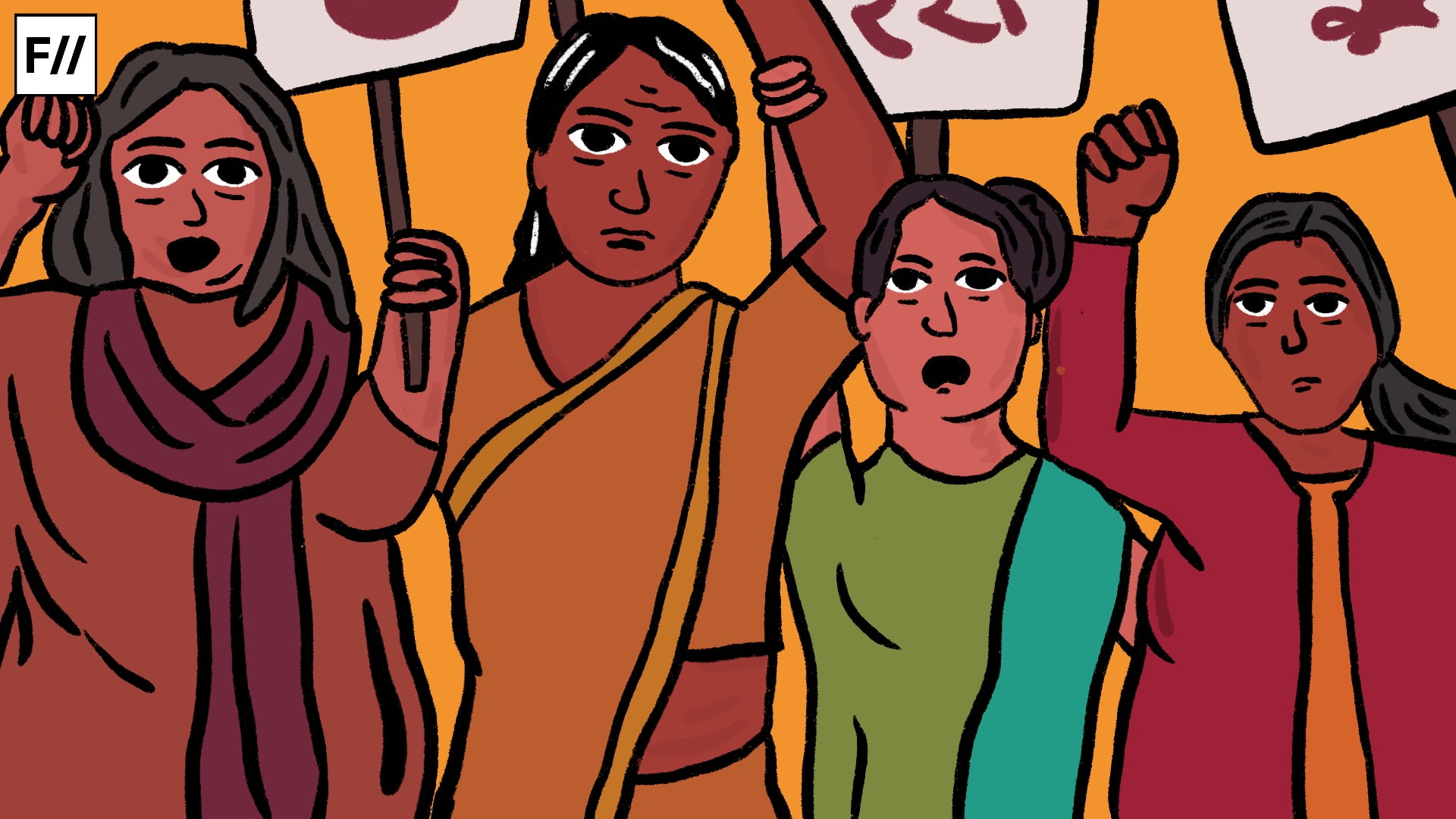Trigger Warning: This article mentions sexual harassment and rape.
“Delhi Police files closure report in the sexual harassment case filed by minor wrestler against WFI president Brij Bhushan Singh before Patiala House Courts. No corroborative evidence found to indicate commission of POCSO charges, says Delhi Police.” — Live Law India tweeted on June 15th, 2023. As the women wrestlers enter the sixth month of their relentless protest, demanding a thorough investigation into the disturbing reports of sexual harassment against BJP MP Brij Bhushan Sharan Singh during his presidency of the Wrestling Federation of India (WFI), their voices continue to be systematically ignored by the responsible authorities. Adding to the burden of speaking out, the wrestlers have also been faced with the requirement to substantiate their claims with audio-visual evidence.
In the realm of justice, while some cases find their way to court and receive a ruling, countless others remain unreported and unresolved. The initial hurdle that women encounter is the inhospitable environment of police stations, where those who are marginalised, due to their caste and religion, often face a lack of trust and credibility when disclosing instances of rape.
In a country where even an Olympic medal fails to amplify a woman’s voice, it is deeply disconcerting to imagine the plight of those women who are denied the opportunity to speak at all. One may, at this point, revisit the profound question posed by Gayatri Chakravarty Spivak: “Can the subaltern speak?”, with an added urgency to answer, perhaps, will the subaltern be heard?
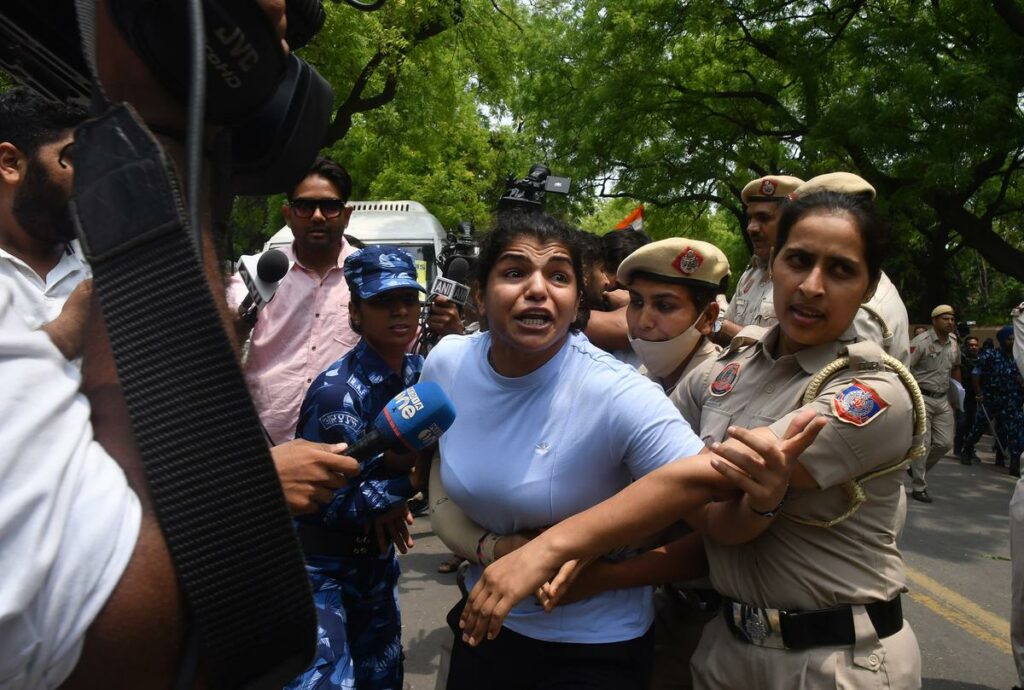
In the realm of justice, while some cases find their way to court and receive a ruling, countless others remain unreported and unresolved. The initial hurdle that women encounter is the inhospitable environment of police stations, where those who are marginalised, due to their caste and religion, often face a lack of trust and credibility when disclosing instances of rape.
From #MeToo to #BelieveWomen: The global movement for survivor support
The #MeToo Movement in the United States witnessed the rise of the political slogan “Believe Women” in 2017 which meant, according to the feminist author Sady Doyle writing in Elle, “don’t assume women as a gender are especially vindictive, and recognize that false allegations are less common than real ones”. The phrase may have its limitations and oversimplify complex situations, but it serves as a powerful reminder of the need to support survivors of sexual crimes.
India has witnessed its own wave of feminist activism demanding justice and stronger laws against sexual harassment and violence. While sexual violence itself is demonising, it must be remembered that it has dimensions that cross physical boundaries. Not only is body autonomy exploited in a brutal manner where consent takes a backseat, but the repercussions that follow form the basis of exploitation that the survivor has to endure at every step of the way toward justice.
The historic fight for rape law reform in India
Long before the outcry for rape law reform in 2012, women united in 1979 to demand justice and stronger laws. When a minor girl, Mathura, was raped, accused constables were set free simply because she couldn’t prove resistance (Tukaram vs State of Maharashtra, (1979) 2 SCC 143). In an impassioned letter addressed to the Chief Justice of India, Upendra Baxi, Vasudha Dhagamwar, Raghunath Kelkar, and Lolita Sarkar urged the Supreme Court to reopen the case. Their compelling arguments laid bare the deep-rooted social stigmas that perpetuate a victim-blaming culture that is openly prevalent.
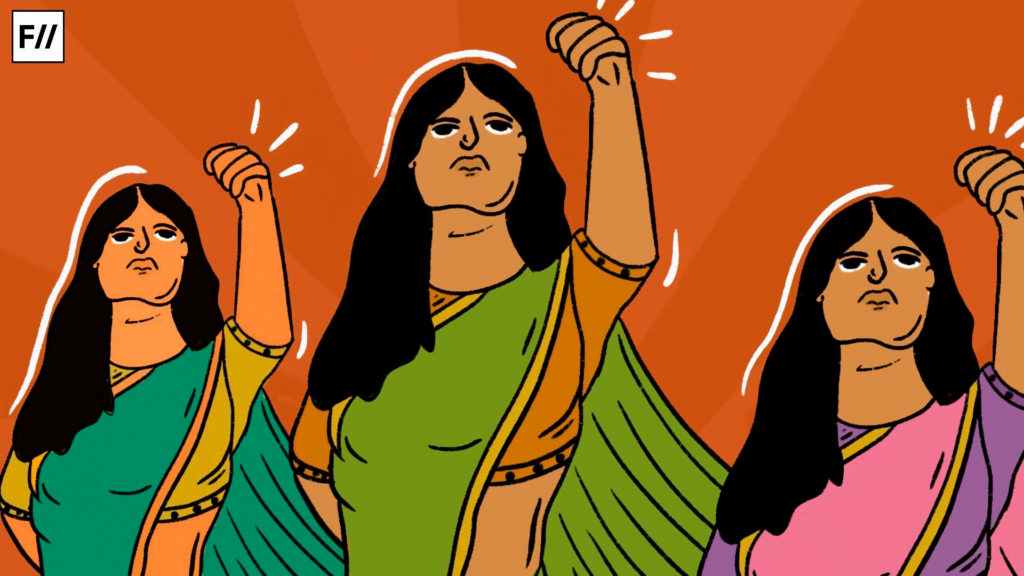
“Your Lordship, does the Indian Supreme Court… expect the girl, a labourer, to put up such stiff resistance against well-built policemen so as to have substantial marks of physical injury? Does the absence of such marks necessarily imply the absence of stiff resistance? If anything it is Ganpat’s [the constable] body which would have disclosed marks of such resistance by Mathura, like clawing and biting… The Court gives no consideration whatsoever to the socio-economic status, the lack of knowledge of legal rights, the age of the victim, lack of access to legal services, and the fear complex which haunts the poor and the exploited in Indian police stations.”
This letter highlighted the continuous discrimination and injustice faced by women when seeking legal redress. The pressure from women’s groups and supportive politicians led to the enactment of the Criminal Law (Second Amendment) Act, of 1983, which marked a significant step forward in addressing issues related to rape.
Additionally, Section 114A of the Indian Evidence Act was amended to stipulate that if a survivor stated that she had not consented to sexual intercourse, her word had to be accepted. Section 376 was also amended to make custodial rape punishable by a minimum of seven years imprisonment.
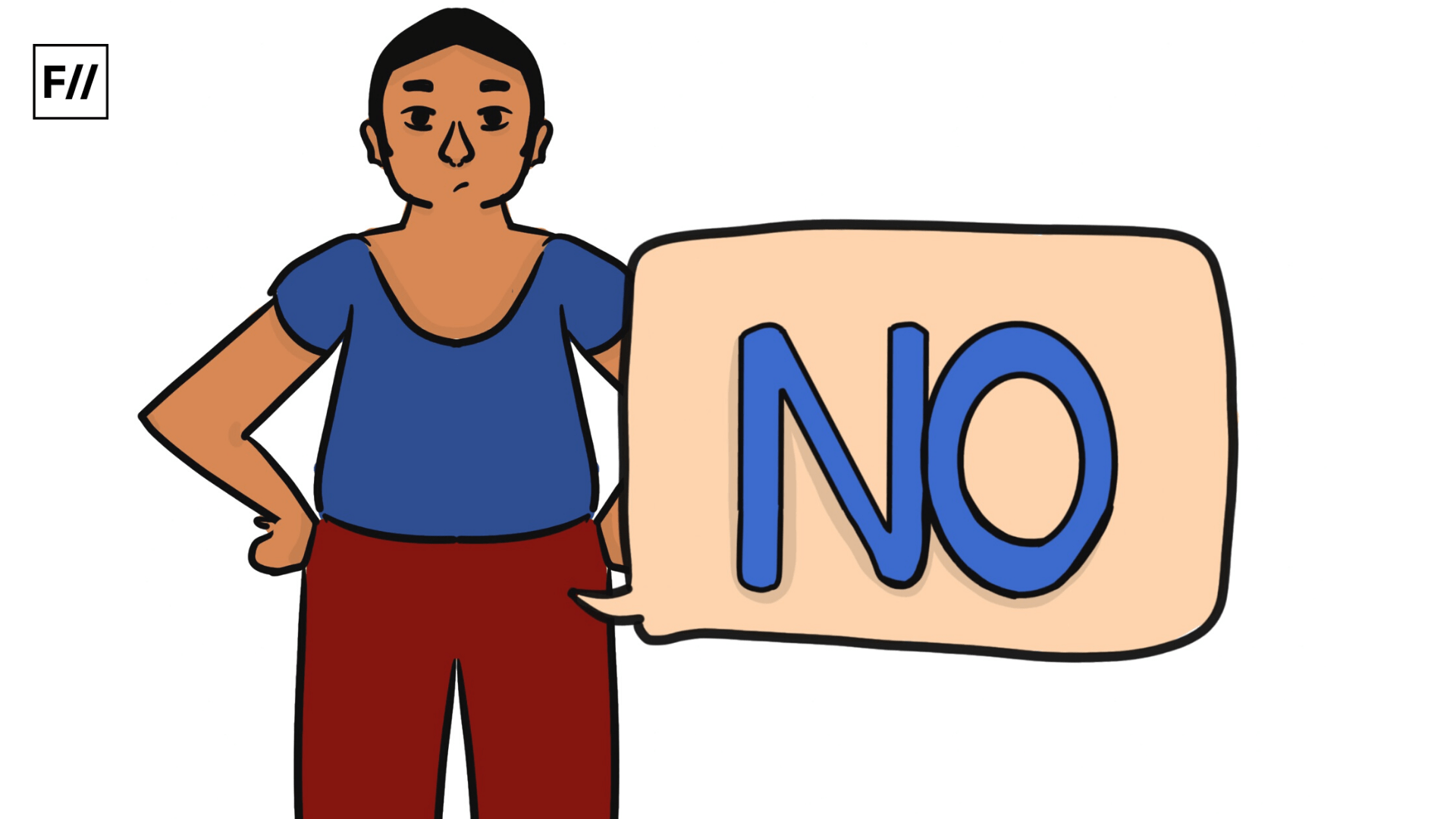
Furthermore, the burden of proof was shifted to the offender, the disclosure of the survivor’s identity was prohibited, and rape trials were mandated to be held on camera.
The prevailing power dynamics
The fact that, even in 2023, the burden of proof continues to fall on the survivor, despite the law being amended to shift this burden to the offender, speaks volumes about the prevailing power dynamics in a strong political sense, where a particular gender continues to hold sway.
In a powerful statement against the individuals who have fallen from grace but still hold influence and wealth, Amia Srinivasan calls them “the prodigal sons of the #MeToo movement”. Despite their claims of innocence and accusations of being unfairly targeted, their anger does not stem from false accusations made against them. Instead, she argues, they are infuriated by the truth behind those accusations. “They are outraged, most of all, that saying sorry doesn’t make it all better: that women expect them, together with the world that brought them to power, to change.”
In a powerful statement against the individuals who have fallen from grace but still hold influence and wealth, Amia Srinivasan calls them “the prodigal sons of the #MeToo movement”. Despite their claims of innocence and accusations of being unfairly targeted, their anger does not stem from false accusations made against them. Instead, she argues, they are infuriated by the truth behind those accusations. “They are outraged, most of all, that saying sorry doesn’t make it all better: that women expect them, together with the world that brought them to power, to change.”
Understanding the root cause: Patriarchy, violence and sexual harassment against women
The daily occurrence of violence against women in different places in India highlights the urgent need to understand why these terrible acts happen.
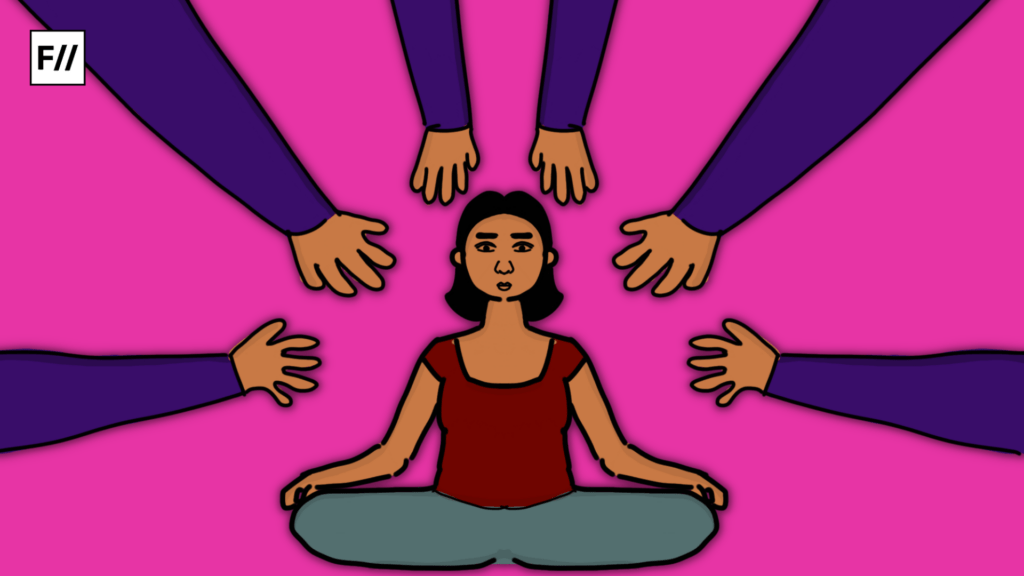
These crimes mainly stem from deeply ingrained beliefs in our society’s patriarchal structure, where men feel they can dominate women through acts of sexual harassment and violence, even if they lack power in other areas of their lives.
In her book about narratives of violence against women in India, Kalpana Sharma argues, women themselves often internalise society’s expectations of purity and shame. Instead of directing their anger towards their attackers, they carry the weight of shame and see rape as something even worse than death. This harmful belief system keeps survivors silent, preventing them from reporting these crimes and standing up against those who hurt them.
In her book about narratives of violence against women in India, Kalpana Sharma argues, women themselves often internalise society’s expectations of purity and shame. Instead of directing their anger towards their attackers, they carry the weight of shame and see rape as something even worse than death. This harmful belief system keeps survivors silent, preventing them from reporting these crimes and standing up against those who hurt them.
A call for collective action against sexual harassment and violence
To break this cycle of silence and injustice, it is crucial to support survivors of sexual harassment and challenge the prevailing power dynamics. The burden of proof should truly shift to the offenders, as intended by legal amendments, and survivors’ voices must be heard and respected. The accountability of those in positions of power must be upheld, and societal attitudes that perpetuate victim-blaming and shame must be dismantled.
Ultimately, achieving justice for survivors of sexual harassment and violence requires a collective effort to challenge patriarchal norms, educate society about consent and gender equality, and create an inclusive and supportive environment that empowers survivors to come forward without fear or shame.
